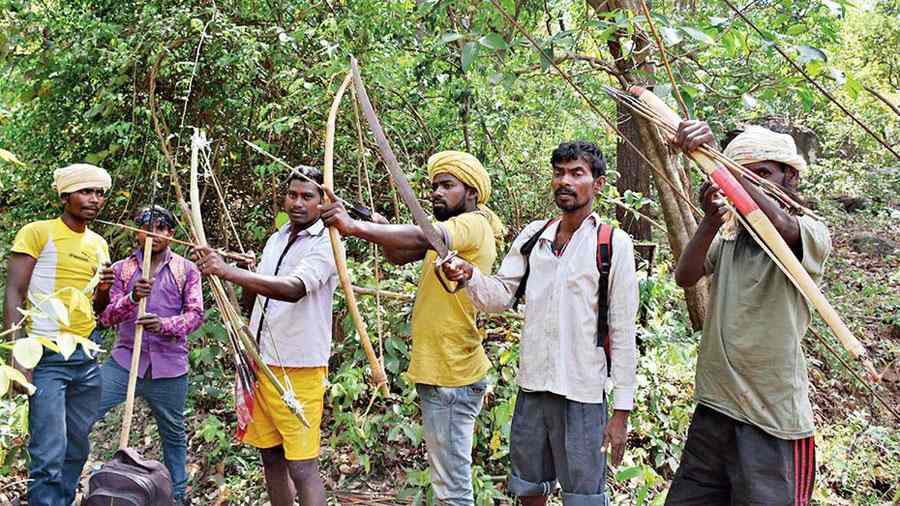Indiscriminate killing of wild animals in the name of ritual hunting has been going on in forests of south Bengal despite a blanket ban imposed by Calcutta High Court, alleged a group of environmental activists.
Some members of an NGO, whose petition had drawn the court’s attention to the practice, were assaulted allegedly by a section of hunters at a forest in Jhargram’s Lalgarh on April 13. An FIR has been filed at Lalgarh police station.
On at least three days, April 4, 13 and 19, animals were killed in forests of Paschim Medinipur, Bankura and Jhargram, the activists said. Some of the kills were documented and have been shared with this newspaper. The dead animals included monitor lizard, wild boar, civet, mongoose and hare.
The Wildlife Protection Act (1972) bans hunting.
Some clips shared with The Telegraph show men parading the kills in front of men in khaki uniform.
This assumes greater significance because in an order on February 20, a division bench of Calcutta High Court said indiscriminate hunting of wild animals “is as heinous and culpable a crime as the offence of murder”.
The judgment came on a contempt petition filed against the state’s chief wildlife warden for failing to comply with an earlier high court directive — on April 18, 2019 — that had put a complete embargo on hunting festivals in the state.
The division bench proposed a panel to “ensure implementation” of the 2019 order. The panel, which the bench called the “Humane Committee”, was formed for five districts — Paschim Medinipur, Bankura, Purulia, Jhargram and Murshidabad.
Each district committee is headed by a district judge. Top police and railway police officers are among the members.
The hunting calendar in south Bengal usually starts on April 4 every year.
“The police superintendents of the districts had assured us that enough men would be on the ground to stop hunters and seize arms and cars headed towards the forests. The Paschim Medinipur SP had even assured us to provide a drone for surveillance. But none of the commitments were fulfilled, resulting in indiscriminate hunting of wild animals. We have documented kills of animals,” said Meghna Banerjee, of the NGO Human and Environment Alliance League (HEAL).
The police denied the allegations.
“No carcass was found in the forests on April 13. Coordination among police, forest department and railway police prevented hunting of wild animals,” said Arijit Sinha, superintendent of police, Jhargram.
Banerjee and her colleagues were allegedly assaulted by a section of hunters on April 13 when they went to document the alleged killing of wild animals in Jhargram.
“We were attacked with blunt and sharp objects. Some of us were injured in the head,” she said.
A police officer in Jhargram said: “The onus of preventing hunting was on the Humane Committee, not on any NGO. We have received a counter-complaint that the NGO members tried to search the bags of the villagers.”
Sandeep Beriwal, divisional forest officer of Paschim Medinipur, said: “We have made significant progress in curbing hunting.”
When the case came up for hearing in the high court on April 12, the petitioners alleged that the Paschim Medinipur SP had failed to deliver on his promises.
The court directed the district judges of Paschim Medinipur, Jhargram and Purulia to file a report on the action taken to curb hunting.
